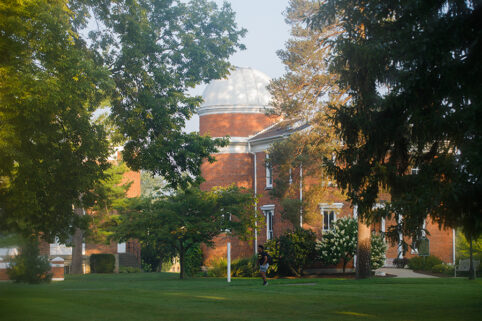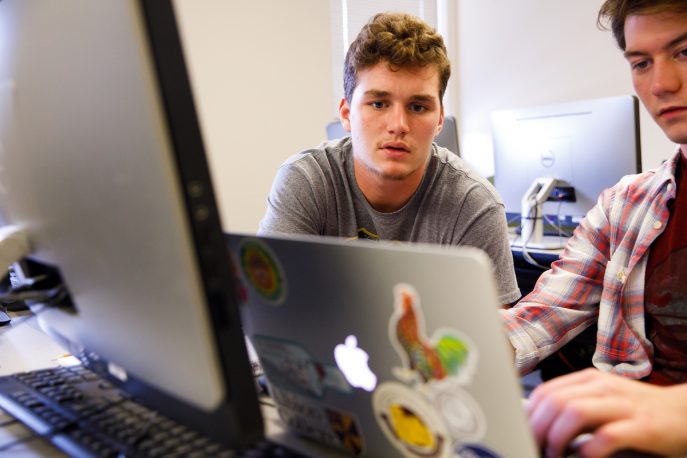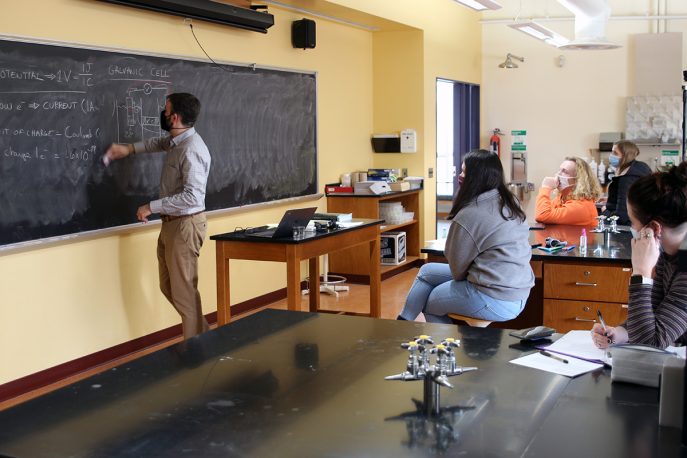Physics
Study the foundation of all natural sciences, the applied sciences, and engineering.
As a student of physics, you’ll study the fundamental mathematical relationships that govern natural phenomena, from the smallest subatomic particles to the observable universe.
Our faculty have backgrounds in atomic, solid state, low-temperature, and quantum physics, electronics, astronomy and planetary science. As a student, you’ll conduct research with faculty in atomic physics, nuclear physics, acoustics, and surface physics, as well as astronomy and planetary science.
You’ll have ample opportunities to translate everything you’re learning into action. Spend a semester studying off-campus in the Great Lakes Colleges Association’s Oak Ridge Science Semester conducted at Oak Ridge National Laboratory in Tennessee. Deepen your knowledge through seminars, field trips, tutoring and social events sponsored by the department. Or join the Astronomy Club for scheduled observing sessions using our campus telescopes.
You’ll prepare for graduate work in physics and related areas and also develop a strong foundation for a career in teaching, research or work in industrial or government laboratories. Physics majors are also well equipped to pursue additional studies in engineering and typically are strong candidates for medical school, dental school, and law school.
Physics Courses
In our courses, you’ll expand your mathematical and analytical skills as you conduct experiments and interpret results. Explore courses offered by our department and courses accepted for transfer credit.

Public Observing
Join us on the roof of Palenske Hall and in our historical observatory in the Honors Building for star and planet viewing on selected nights and days this year.
The telescopes will be open to the campus community and the public for viewing celestial objects, weather permitting.
Public Observing
